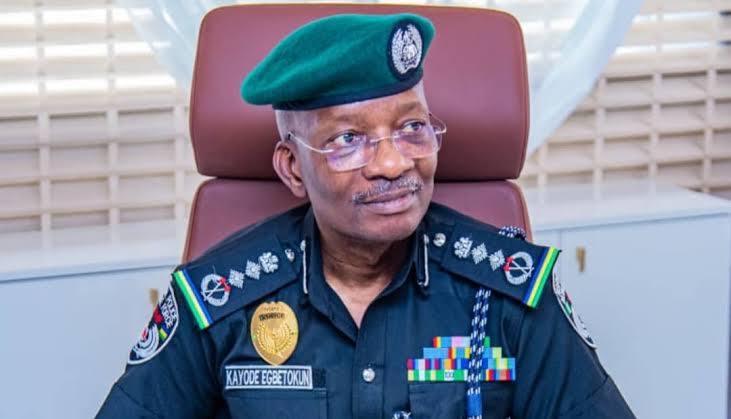Inspector General of Police Kayode Egbetokun arrived in Benue State, Nigeria, to address a surge of violent attacks that have claimed numerous lives and displaced hundreds, particularly in the Guma Local Government Area. The deployment follows a series of brutal assaults attributed to suspected herdsmen, which have sparked widespread fear and public outcry. Egbetokun’s visit responds to President Bola Tinubu’s directive to security chiefs to restore peace and stability in the region, amid calls from local leaders for a state of emergency to tackle the escalating crisis.
The violence in Benue, notably in communities like Mbakyor, Mbagwe, and Mbachon, has been devastating, with reports estimating between 45 and over 200 deaths, including entire families reportedly burned alive. The attacks, which began around June 10, 2025, targeted vulnerable rural settlements, destroying homes, farmlands, and livelihoods. Displaced residents, primarily farmers, have sought refuge in makeshift camps, while local leaders, including the Masev Development Association, have criticized the government’s delayed response, highlighting the recurring nature of such violence in Benue.
Upon arrival, Egbetokun ordered the immediate deployment of additional tactical units to bolster security operations across the affected areas. These include Police Mobile Force units, specialized counter-terrorism squads, intelligence operatives, and aerial surveillance teams equipped with helicopters to monitor and respond to threats in real time. The Inspector General emphasized that these measures aim to apprehend the perpetrators, restore normalcy, and prevent further loss of life, while urging residents to provide actionable intelligence to aid security efforts.
The Nigeria Police Force issued a statement detailing the enhanced operational strategy, which includes increased patrols, strategic checkpoints, and collaboration with other security agencies, such as the Nigerian Military and the Department of State Services. The deployment also involves advanced technological tools, including drones, to track armed groups operating in remote areas. Egbetokun assured the public that the police are committed to protecting lives and property, addressing criticisms of prior inaction by showcasing a proactive stance.
The crisis has drawn significant attention, with Governor Hyacinth Alia and local stakeholders pressing for sustainable solutions beyond temporary deployments. The Benue State government has called for federal support to establish permanent security outposts in vulnerable communities and address the root causes of the conflict, often linked to farmer-herder disputes over land and resources. Civil society groups have echoed these demands, advocating for long-term policies to mitigate ethnic tensions and economic deprivation fueling the violence.
Public reactions reflects frustration with the recurring violence and perceived government failures, with some users questioning the effectiveness of deploying more officers without addressing systemic issues like arms proliferation. Others have praised the Inspector General’s swift response, viewing it as a step toward accountability. However, the scale of the crisis, with thousands displaced and entire villages razed, underscores the challenge of achieving lasting peace in a region long plagued by insecurity.
Egbetokun’s visit also included engagements with local leaders, including traditional rulers and community representatives, to foster trust and gather firsthand insights into the security situation. These discussions emphasized the need for community policing initiatives to complement the tactical deployments. The Inspector General reiterated the police’s commitment to impartial enforcement, addressing concerns about alleged bias in handling farmer-herder conflicts.
The broader context of Benue’s insecurity involves complex dynamics, including competition for grazing land, climate-driven resource scarcity, and the proliferation of small arms among non-state actors. Analysts note that while the immediate deployment of forces may deter further attacks, long-term stability requires addressing these underlying factors through dialogue, economic development, and disarmament programs. The federal government’s response, including Tinubu’s directive, signals a recognition of the crisis’s severity, but its success hinges on sustained implementation.
As of June 16, 2025, security operations are ongoing, with reports indicating early successes in repelling attacks and recovering illegal firearms. However, the humanitarian toll remains high, with displaced persons facing shortages of food, shelter, and medical care. The Nigeria Police Force has pledged to maintain heightened operations until the situation stabilizes, while calling for public patience and cooperation to ensure the safety of all residents.




